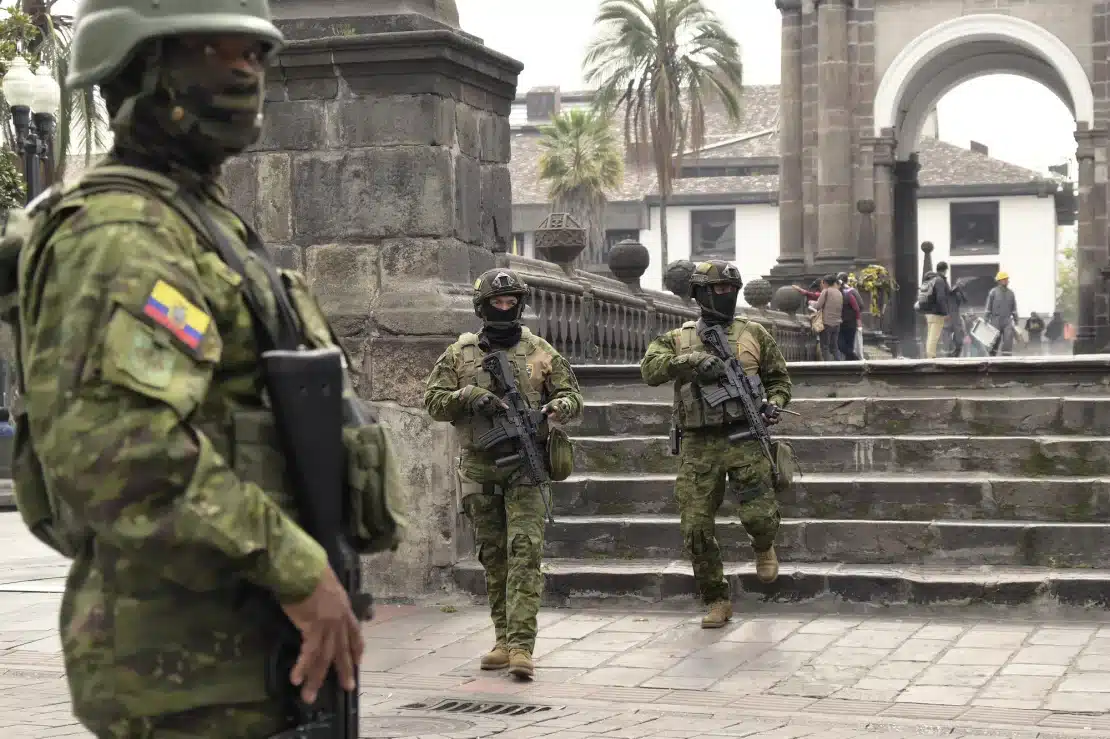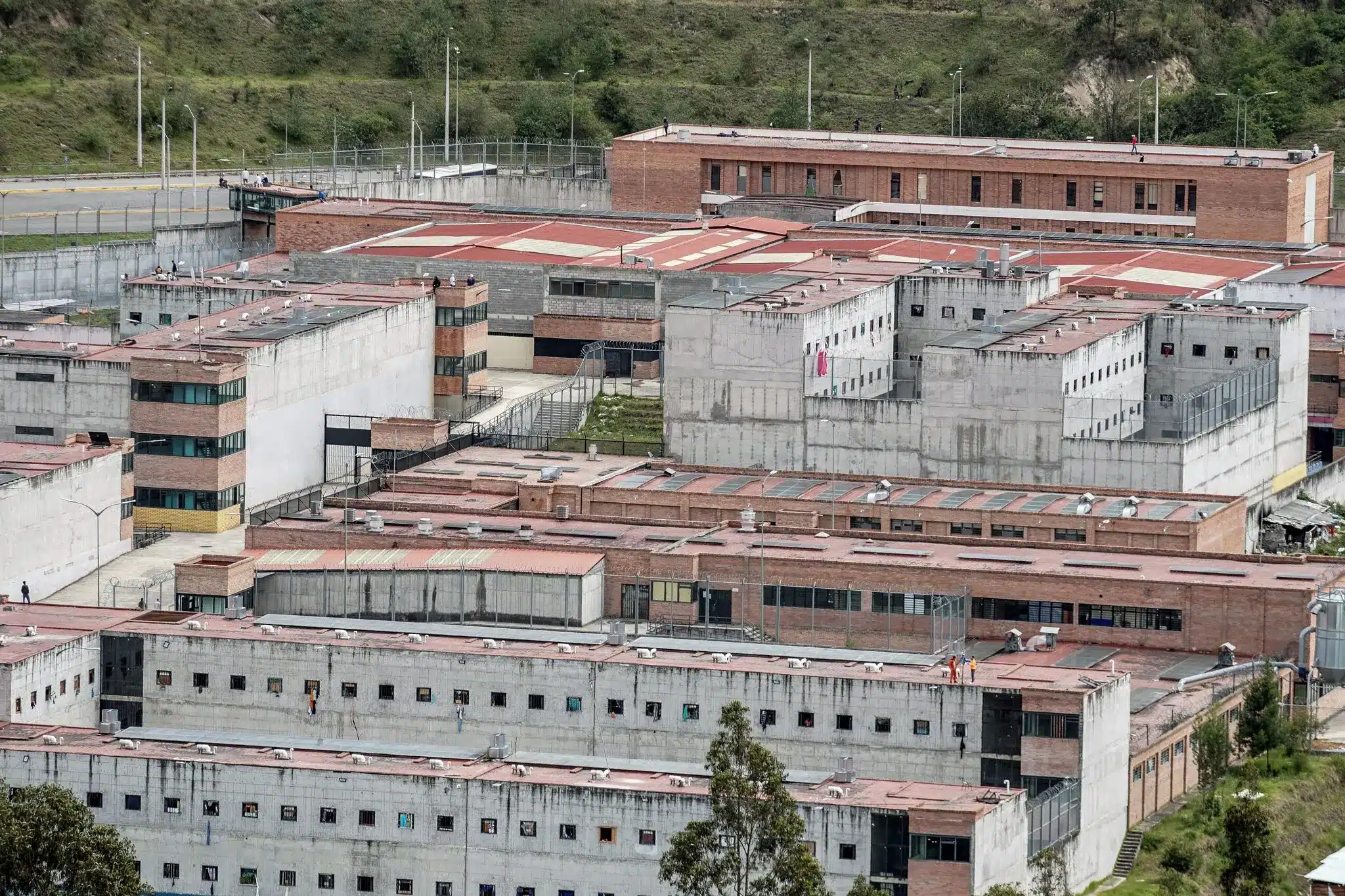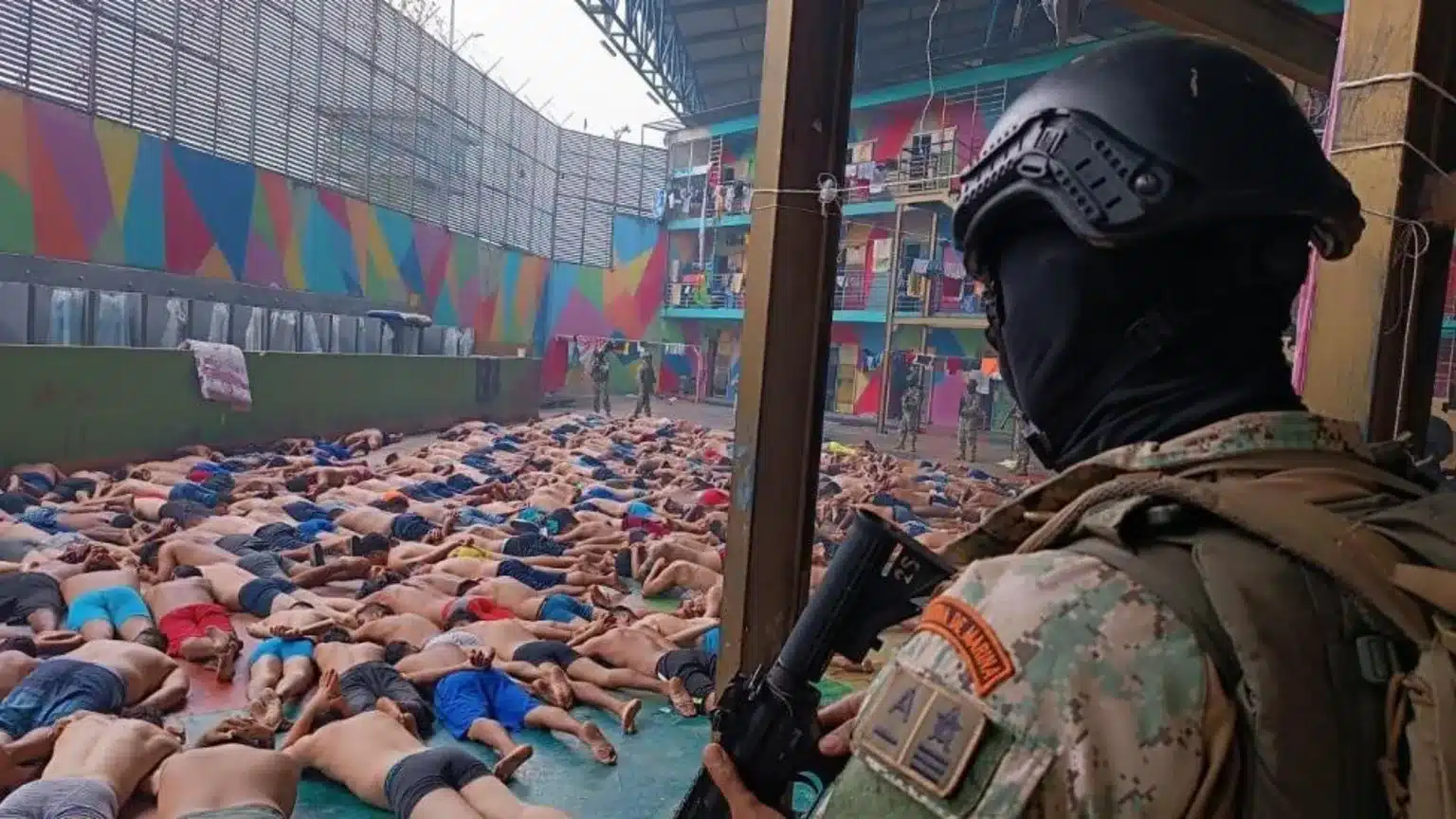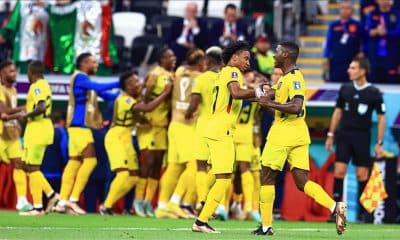World News
Ecuador Plunges Into Turmoil: President Noboa Declares Emergency Amid Gang Violence And Media Attacks

In a week marked by escalating violence and chaos, Ecuador has been thrust into a state of turmoil following a series of alarming events involving powerful gangs, prison riots, and an unprecedented attack on a television station. President Daniel Noboa, facing an escalating security crisis, has declared a 60-day state of emergency, instigating a series of stringent measures aimed at curbing the spiralling violence.
The crisis deepened early this week when Adolfo “Fito” Macias, a notorious gang leader, mysteriously vanished from a prison cell in Guayaquil. This incident catalyzed a wave of violent episodes across the nation, including uprisings in several prisons and kidnappings of guards by inmates.

Turi prison in Cuenca, Ecuador.
In a startling escalation of the unrest, a group of armed, hooded men stormed into the studios of TC Television in Guayaquil during a live broadcast, taking staff hostage and engaging in a gunfire exchange with police. The siege, which was broadcast live, ended with the police apprehending the assailants.
Ecuador’s president, Daniel Noboa, responded decisively to the unfolding chaos by declaring an “internal armed conflict” on Tuesday. He authorized the armed forces to “neutralize” identified criminal groups, which he described as “terrorist organizations.” The emergency decree also imposes an overnight curfew nationwide and grants the military the authority to patrol streets and take control of jails.
The president’s actions, though controversial, reflect a determined effort to restore order in a country that has been plagued by violence fueled by a burgeoning drug trade. Noboa, having come to power amid concerns over security and the economy, faces his most significant challenge yet as the gang violence threatens the nation’s stability.

Soldiers have been deployed to the prison from which the gang leader known as Fito escaped
Mr. Macias, leading the feared Los Choneros gang, has been a pivotal figure in this crisis. His escape from the overcrowded Guayaquil prison, where he had been overseeing the gang’s operations, and the subsequent prison disturbances highlight the severity of the gang’s influence within Ecuador’s penitentiary system. The government’s decision to transfer high-profile convicts like Macias to a maximum-security facility might have precipitated these events.
As the country grapples with this unprecedented situation, Ecuadorians remain stunned by the boldness of the attacks, especially the televised raid on TC Television, which has since become a symbol of the current state of lawlessness. The situation in the prisons remains tense, with reports of disturbances and the retention of penitentiary agents.
In a nation already reeling from the assassination of presidential candidate Fernando Villavicencio, a vocal critic of corruption and organized crime, these developments have only intensified the sense of urgency and fear.
President Noboa, in his latest address, reaffirmed his commitment to tackling the soaring crime rates and regaining control of the country’s prisons. As the search for the escaped gang leader and other fugitives intensifies, the Ecuadorian government faces a critical test in its ability to restore peace and order to a nation on edge.












